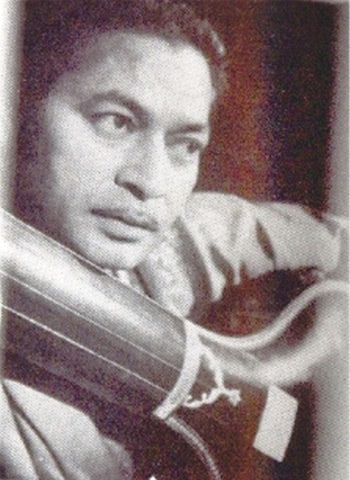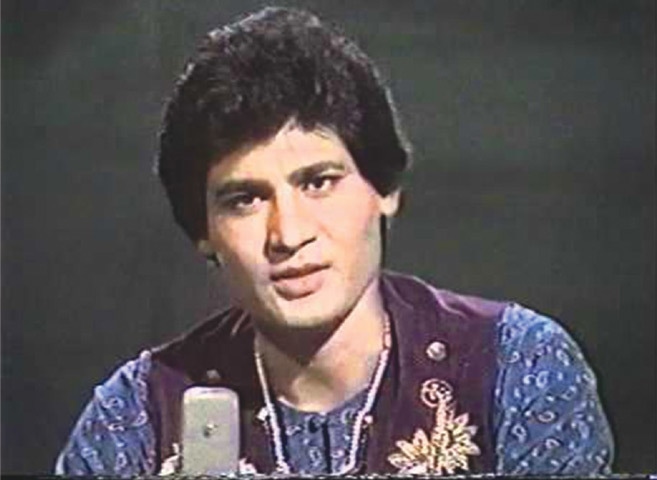Ibne Insha was a nifty character. Poet, diplomat, author and a Marxist. However, he was mostly known for his poems that he regularly published in compilations and literary magazines.
There is one poem that he penned in the early 1970s that greatly heightened reputation. It was called Insha ji Utho (Get up, Insha).
The poem is about a melancholic man, who, after spending the night at a gathering (most probably at a brothel), suddenly decides to get up and leave — not just the place, but the city itself.
Is it the power of poetry that makes the song of death or is it just a coincidence?
He walks back to his house and reaches it in the wee hours of the morning. He wonders what excuse he will give to his beloved. He’s a misunderstood man looking for meaning in (what he believes) is a meaningless existence.
The poem soon caught the interest of famous Eastern classical and ghazal singer, Amanat Ali Khan.
Amanat was looking for words that would depict the pathos of urban life (in Karachi and Lahore).
Someone handed him Ibne Insha’s Insha ji Utho and Amanat immediately expressed his desire to sing it.
He met Ibne Insha and demonstrated how he planned to sing the ghazal. Insha was impressed by the way Amanat actually transfigured himself into becoming just like the forlorn protagonist of the poem.

When Amanat Ali Khan first performed the ghazal on Pakistan Television (PTV) in January 1974, the channel was immediately blitzed by letters demanding that the ghazal be aired again. It became the singer’s biggest hit.
But after just a few months of enjoying this burst of triumph, Amanat Ali Khan suddenly passed away. He was just 52.
Then in January 1978, exactly four years after Amanat Ali Khan’s rendition of Insha ji Utho was first telecast on PTV in 1974, the poem’s author, Ibne Insha died.
He had begun to suffer from cancer in 1977 and travelled to London to get treatment. He wrote a number of letters (to close friends) from his hospital bed. In the last such letter that he wrote, he wondered about the success of Insha ji Utho and Amanat Ali Khan’s death. Then after lamenting his own deteriorating condition, he wrote: ‘Yeh manhoos ghazal kitno ki jaan ley gi …?’ (How many more lives will this cursed poem take?)
The very next day, he passed away. He was just 50.

Amanat Ali’s son, Asad Amanat Ali, too was a gifted Eastern classical and ghazal singer. He began to perform regularly on TV after his father’s death in 1974. But unlike his father, Asad also ventured into singing (as ‘playback vocalist’) for Urdu films. He gathered ample recognition and fame in the 1980s.
He was always a popular draw at ghazal concerts, singing his own famous ghazals, film songs and those of his father’s. In 2006, he performed a concert for PTV that he rounded off by singing Insha ji Utho. Incidentally, this would be his last concert and Insha ji Utho the last song that he would ever perform.
A few months later, he passed away as suddenly as his father had done 33 years ago. Asad was too 52, just as his father had been at the time of his death.
Asad’s brother, Shafqat Amanat Ali, had already risen in the early 2000s as a gifted semi-classical and pop singer. His stint with the pop band, Fuzon, was what broke him into the mainstream. He quit the band after recording just one (highly successful) album, and began his solo career which too has been equally successful
During concerts (and on TV), he is often asked by fans to sing Insha Ji Utho. He almost always declines. Not because he is afraid of singing it, but because after his brother’s death in 2007 (and before that, after the demise of his father in 1974), Shafqat’s paternal family begged Shafqat never to sing Insha ji Utho — the poem and song that apparently took the lives of three men (Amanat Ali Khan, Ibne Insha and Asad Amanat Ali).
Echoing the words of the ghazal’s author, Ibne Insha, that he made on his hospital bed in 1978 Shafqat’s family too insists that the ghazal is cursed. What’s more, despite its popularity among ghazal fans, very few singers have attempted to cover it. Some say they don’t sing it out of respect (for the three men), while others have admitted that an eerie notion of fear has kept them from performing it.
Published in Dawn, Sunday Magazine, November 1st, 2015
On a mobile phone? Get the Dawn Mobile App: Apple Store | Google Play













































